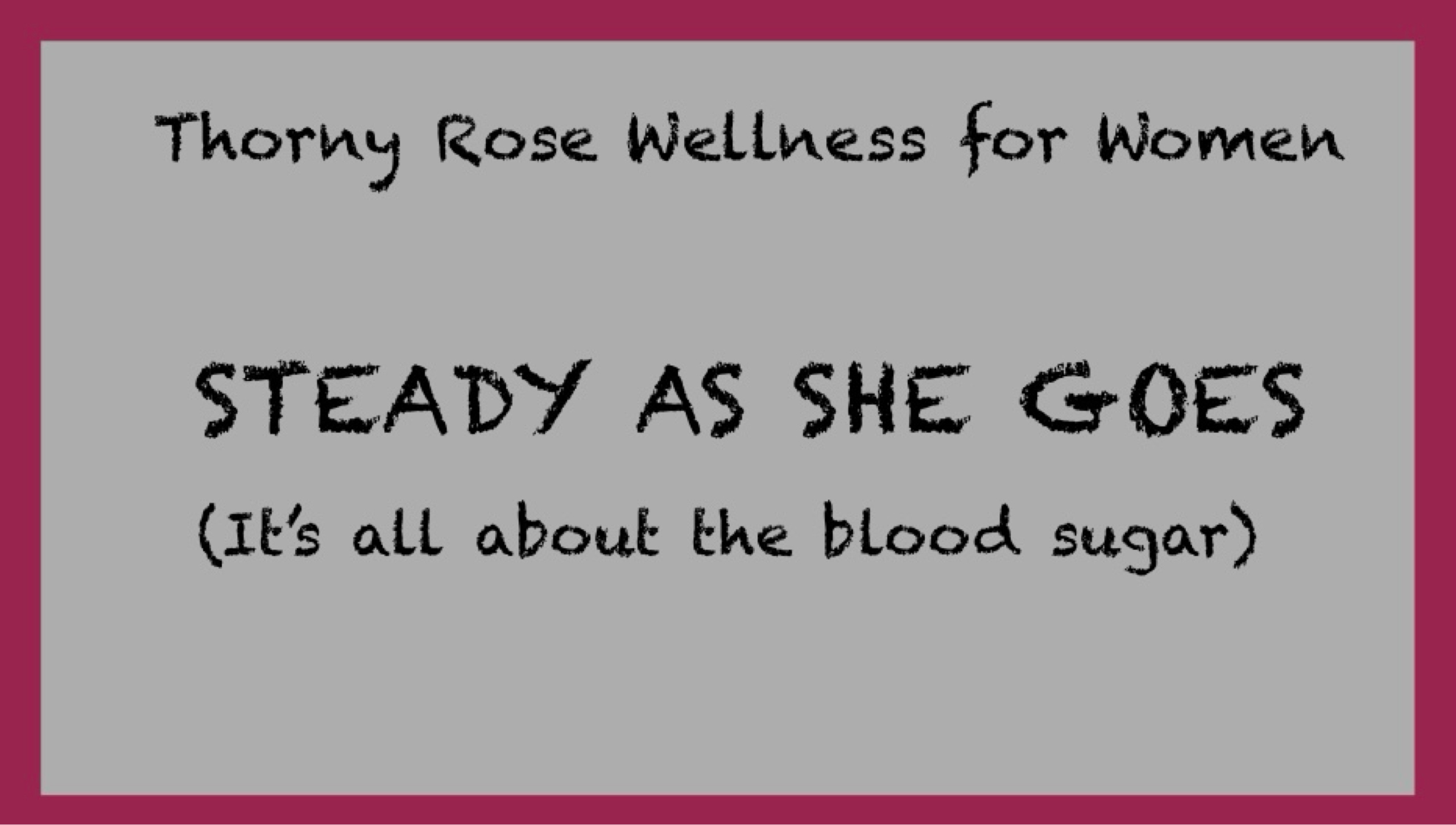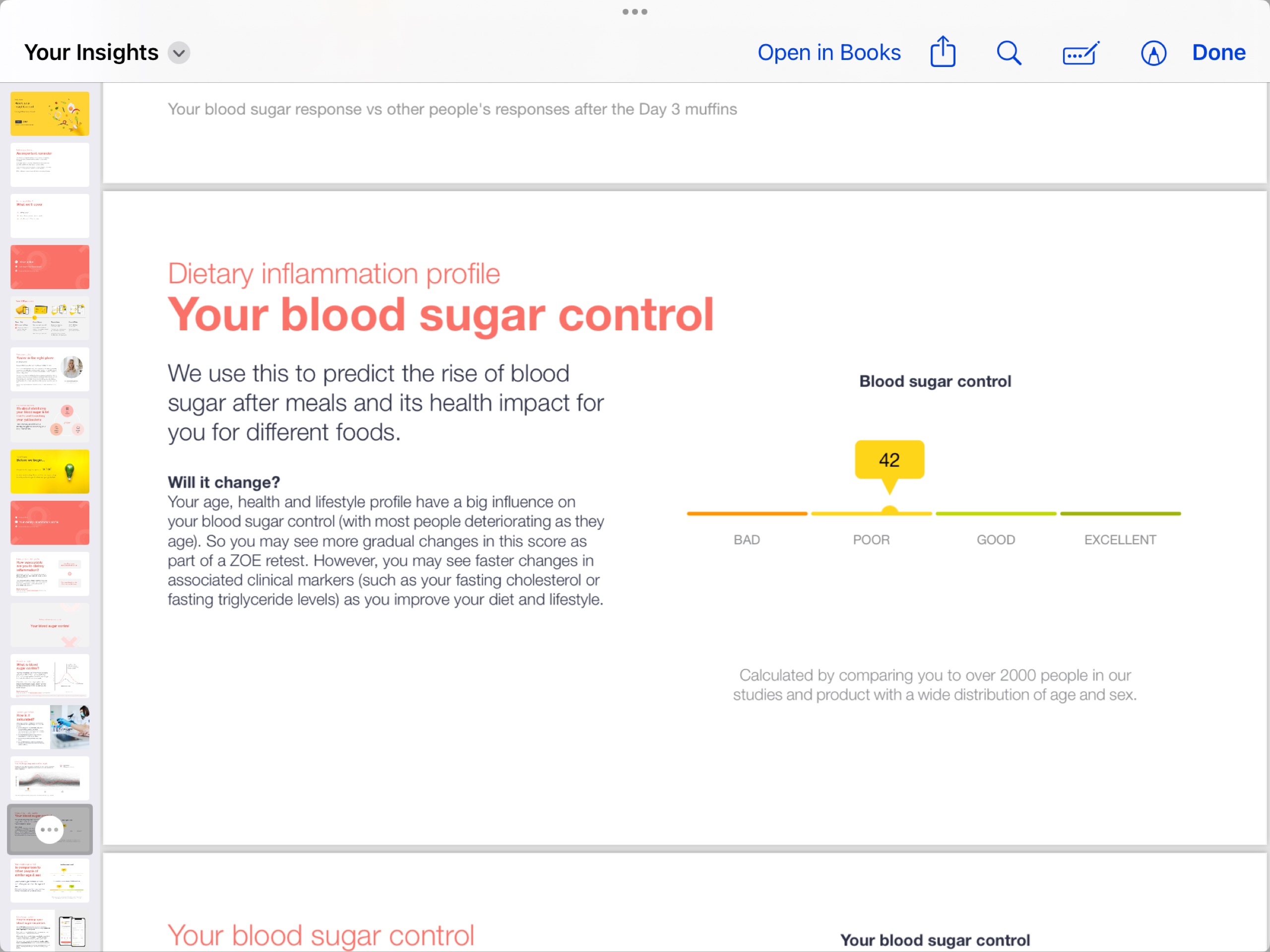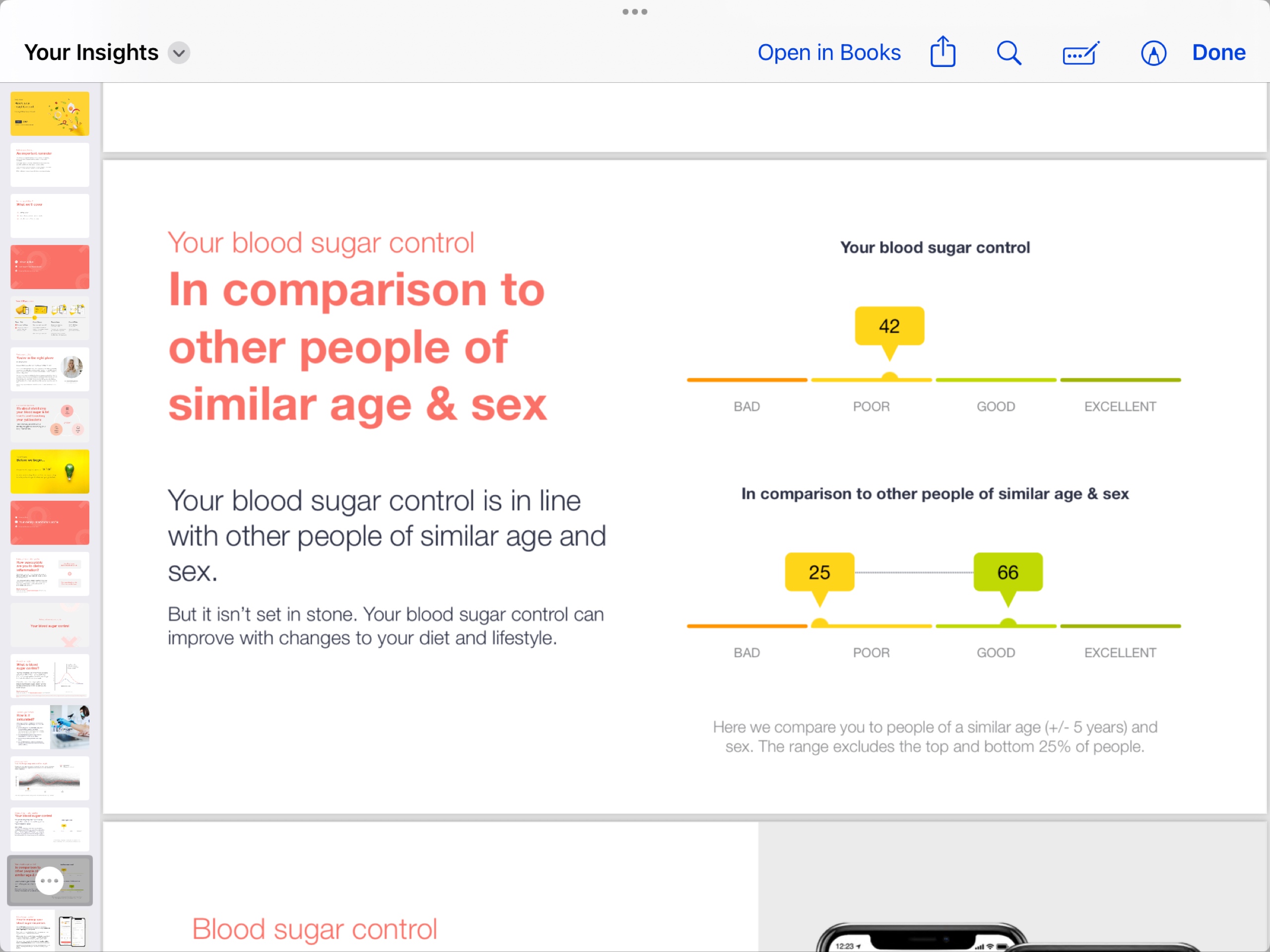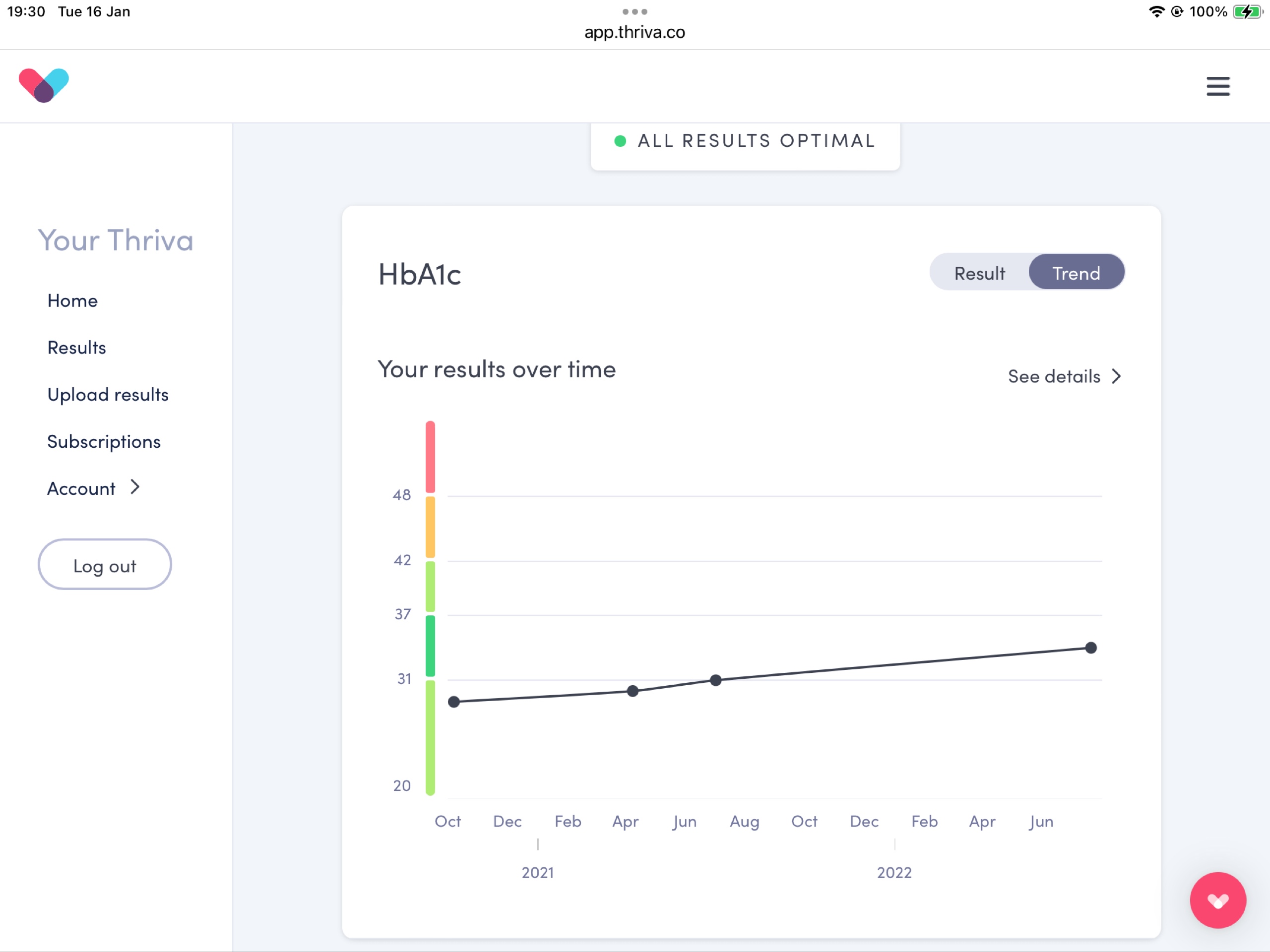Steady as She Goes (it's all about the blood sugar)

I’ve mentioned blood sugar levels a few times this week, because they really are one of the cornerstones of good health.
It’s time to move away from outdated models of “calories in vs calories out” and start focussing on what really matters.
So what is the deal with blood sugar? Why is it so important to keep it steady? What can you do to improve your own blood sugar levels? Besides the obvious of avoiding refined sugar, of course, which we aren’t all willing to do.
Need a reminder about why the spikes are so bad?
Repeated cycles of blood sugar spikes and crashes can lead to:
Insulin Resistance: Frequent blood sugar spikes can contribute to insulin resistance, where cells become less responsive to insulin. This condition is a precursor to type 2 diabetes and can lead to elevated blood sugar levels over time.
This has the knock on effect of increasing the risk of dementia, the UK’s leading cause of death for women.
Increased Fat Storage: High levels of blood sugar trigger the release of insulin, which promotes the storage of excess glucose as fat. This can contribute to weight gain, especially around the abdominal area. Not necessarily through excessive consumption of food - just the wrong kind of food taken in the wrong kind of way.
Inflammation: Chronic elevation of blood sugar levels can lead to increased inflammation in the body. Inflammation is associated with various health issues, including cardiovascular disease. This is a biggy! Cardiovascular disease! Not, as previously claimed, so much to do with saturated fat, but rather inflammation caused by blood sugar spikes.
Inflammation also causes unpleasant symptoms such as fatigue, brain fog, joint pain, headaches, mood swings and dry skin.
Energy Swings: Blood sugar spikes are often followed by rapid drops, leading to fluctuations in energy levels. This can result in fatigue, irritability, and increased cravings for sugary or high-calorie foods. Ironic that something that provides such an efficient energy supply actually results in fatigue.
Impaired Blood Vessel Function: Not good - a risk factor for cardiovascular diseases. Along with inflammation, this is one of the mechanisms by which excess blood glucose is a contributing factor to cardiovascular disease. You really want lovely elastic healthy blood vessels!
Hormonal Imbalances: Blood sugar fluctuations can affect hormonal balance, including insulin, leptin, and ghrelin. This can influence appetite regulation, potentially leading to overeating. At the same time, imbalances in the hormones insulin, thyroid hormones, cortisol, and the sex hormones cause difficulties in maintaining regular blood sugar levels. A vicious circle. Blood sugar adversely affects hormones, and hormone imbalances adversely affect blood sugar.
Those are appalling health outcomes. This is all a bit rubbish, really, because to most people, sweet things taste good, and avoiding them isn't easy.
Many people will say sugar is sugar is sugar, but that's not really the case.
Refined is the key point here. Natural sugars are one thing, packaged in their bundles of fibre. Sugar separated out from those packages, are a different matter. Apples - fine, apple juice - dodgy.
And sugars altered by being mushed up by something that isn’t your teeth? Such as smoothies. Also not as good as sugar in the natural package.
That’s bad news. Smoothies are lovely. And crammed full of polyphenols and all sorts of active compounds. It’s just that altering the matrix by whizzing it all around makes all the nutrients so very easily accessible, including the sugars.
So what are we to do?
Well, there’s plenty we can do to improve our blood sugar response without causing great misery to our lives.
A couple of these we have already mentioned, but here’s a fuller list:
Eat mostly whole, nutrient-dense foods like fruits, vegetables, lean proteins, and whole grains.
Incorporate fibre-rich foods to slow down the absorption of glucose. And when you do eat more refined carbs and sugar, pair with protein and fat. Dark chocolate -good in moderation, Brazil nuts - really good for most people, pair the two and you have a lovely sweet treat that won’t spike your blood sugar and will give you a protein and good fat boost. Easy to make yourself. Another really good thing is medjool dates filled with almond or peanut butter and wrapped in dark chocolate. The dates themselves, although full of lovely goodies, including fibre, are so sweet they could easily cause a blood sugar spike if eaten on their own, but combined with nut butters they cause a much smaller rise in blood sugar. The chocolate just keeps them fresh and easier to eat, but it is optional.
Knowing your own response is helpful. Remember I mentioned that my own blood sugar response, according to Zoe, is poor? (Zoe gives you disgusting cookies to eat, under carefully controlled conditions, and then you do a finger prick test to test your fat and blood sugar responses against others who have eaten the same foods under the same conditions. If you have a large spike, you have worse blood sugar control).


And yet, my average blood sugar level is bordering on the lower side, and when I used a continuous blood sugar monitor, my spikes and dips were all within a small range. From which I conclude that the strategies I have been using have been very good at controlling my blood sugar, even though my blood sugar control is poor. Make sense?

Eating smaller, more frequent meals throughout the day can help maintain steady blood sugar levels. This is another of those hotly contested bits of advice, and it is very much the case that individuals respond differently to this. Some are better off with 3 - or even 2 - square meals a day, and others are better off grazing. Generally speaking, women function better in a fed state. Men, and some women, respond very well to intermittent fasting, in its various permutations. Most of the research done on fasting - and the low carb diets such as Atkinson - were done on very overweight men needing to lose weight prior to surgery. Overweight women responded well to the regime, too - to start with - and the benefits levelled off.
Exercising in a fasted state is great for men, but generally much less so for women. So if you’ve ever found yourself exercising before breakfast and really struggling, that’s probably why. You don’t need much, but a banana - or this is a great time for that smoothie - 15 minutes before you start can really help.
And that’s an interesting point, I feel. We are all about not eating highly sugary foods in isolation, but if you are exercising vigorously that is a different matter. You know that the Tour de France riders have glucose and electrolyte drinks regularly along the course? If they get handed plain water instead, they keel over pretty fast. They are using that sugar as fast as they can take it in, and it is essential for fuelling their activity. Now, it’s unlikely you are doing that level of activity and if you are just going out for a quick stroll you definitely don’t have to pre-fuel. But if you are doing something very vigorous, then if there were ever a time to eat something very easily digestible that would give you almost instant energy, this would be it.
Regular exercise, such as brisk walking, jogging, swimming or strength training, improves insulin sensitivity and lowers blood sugar. But more than that we know that very regular exercise, of the type we are doing with Thorny Rose, is even better. Walking up and down some stairs a couple of times every half an hour is astonishingly helpful in keeping the blood sugar levels low.
And timing really helps, too - moving after a meal, even if only for a few minutes, within the first half hour, also significantly reduces blood sugar levels. The extent varies according to the individual, but it will bring those levels down.
Hydration can help with blood sugar stability, but there is no need to force down two extra litres a day. Tea, coffee - even caffeinated and “normal” kinds - count as your fluid intake, as does all the fruit and veg you eat. The only thing that doesn’t count is alcohol, and you would also be ill-advised to hydrate via coke, diet or otherwise, or by fruit juices.
Chronic stress can contribute to elevated blood sugar levels. We’ll look at some strategies for dealing with stress and sleep in the next fortnight, because indeed:
Lack of sleep can affect insulin sensitivity. The advice is to “aim for 7-9 hours of quality sleep per night.” Ha ha ha ha ha, I can hear you laughing from here. But still, a worthy aim.
As mentioned above, “healthy” fats, such as avocados, nuts, seeds, and olive oil help moderate blood sugar responses, and so - contrary to current advice - do saturated fats. Trans fats are the to-be-avoided-at-all-costs fats. Ethical considerations aside, butter is better for you than an emulsion of fat and water which is what most of the alternative spreads are. Same goes for cheese, unless it is fermented nut cheese, and a lot of the alternative milks are not good for you at all. How good animal milk is for us is a matter of hot debate, of course, but it isn’t automatically the case that the alternatives are better.
If you get the opportunity, regular blood sugar monitoring is an excellent real-time way of learning about your own individual responses to certain foods, and how you respond to approaches such as having a smoothie before some exercise, or walking soon after a meal. You don't have to be diabetic to get one! You can just buy a monitor, attach it, download the app, and scan at obsessive intervals. It will also regularly monitor your peaks and troughs and map them to a graph. Maybe croissants don't spike your blood sugar - that would be good to know. It's astonishing how much individual responses can vary.